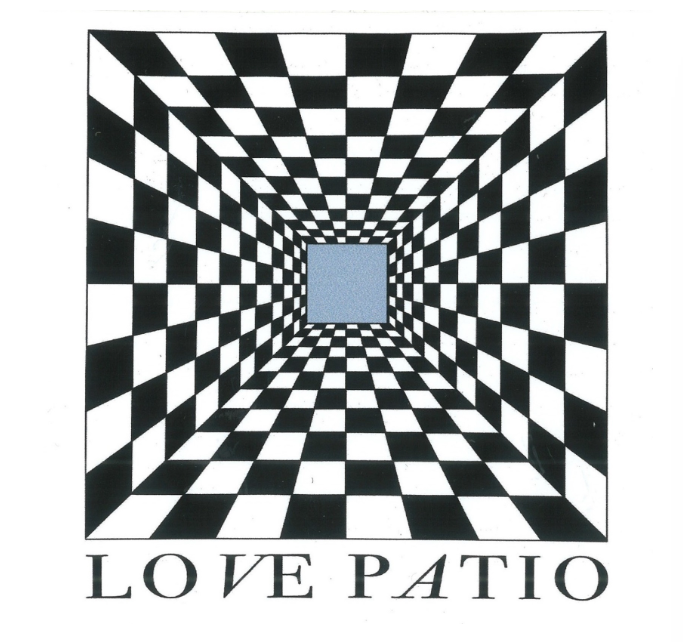Love Patio was formed “in 1987 by Ken Fabricatore and Mikael Jacobson while they attended the Musician’s Institute in Hollywood, CA.The two conducted late-night jam sessions, which turned into recordings via a Tascam cassette 4-track machine.”
Now they’ve released their debut album, ‘”Debut Album,” an emulsion of jazzy flow and indie jamming.
“I probably started playing drums at 13. And so even though I play guitar on LOVE PATIO tracks, I’m primarily a drummer. That’s what I moved out to California for. Joined all the bands in high school—jazz band, Pep Band, Concert Band—then moved to Florida, started playing in punk rock bands in Gainesville back in the early, mid-80s,” Ken recalls.
For Mikael, the journey started even earlier: “I played music from the time I was a kid, and started with piano and drums and some guitar, and finally bass, which became my main instrument.”
They tell me about music school in Hollywood in the 80’s and DIY scenes, saying:
“It was kind of the peak of hair metal. But there was also another thing… there was certainly an underground. We were both going to see Jane’s Addiction all the time, Chili Peppers all the time. Probably a handful of other bands.
“Beyond just playing music, theres the community of it for me, and not just Hollywood—Gainesville, New York—it was all grassroots. It was making your own flyers, handing them out to your friends, handing them out to girls you liked, just getting people to a show, basically getting an event going. Now, the rest was up to you. If your band sucked, people weren’t going to keep coming to it. It was just, I don’t know, it was more organic.”
And on the note of organic community, they mention the largest of all:
“I got into the Grateful Dead when I was probably 24, and I would say they were about the ultimate of a band creating a community. Gosh, over six years, I went to 135 Grateful Dead concerts. That absolutely became my world because of this one band, and I wasn’t alone.”
Beyond live music, we discussed digitization, what ‘making it’ looks like across time and music genres.
“What we would have given to be digital back in the 80s! We were so limited with four-track cassettes. You could bounce them down just a little bit to get some extra tracks going, but at best, you could get maybe seven different things going on without the sound degrading.
“But, at the same time, that lack of technology really was a good thing. That was all we had. There was minimal distraction. I don’t know how people get stuff done today. That was it—it just felt like that was all I was doing, all day long, going to class and coming home and recording, just all day long. I had something like 135 four-track tapes full of music.
“As much as digital is at our fingertips, I do think there’s been a resurgence of vinyl because it doesn’t have that compressed sound. Some people don’t care, but other people do. I have a record player, and I like it. It’s something I enjoy. That’s why I wanted to put out an album.”
Touching on this importance of music to personhood, Ken shares its intraperonal benefits, saying, “I try to put in 30 minutes on my guitar every day. It just helps with my overall mental attitude, puts me in a good mood. It clears my head. I would equate it to either gardening or going for a jog.
“I constantly have melodies going through my head. I constantly have drum patterns going through my head, and it doesn’t leave you.”
The passage of time and the digital revolution have changed things, but some things stay the same: a tune to keep you going and people to jam with.

